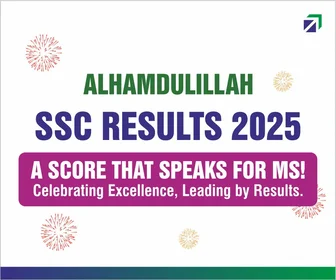
Hyderabad: When a woman rises, she lifts not only herself but all women around her—and when that woman is a writer, her words can spark transformation. The two-day Bainul Aqwami Nisai Adabi Tanzeem (BANAT) conference which concluded at the Urdu Hall here on Thursday (October 31, 2024) drew around 70 women Urdu writers from 18 states.
The conference which marked the 8th Foundation Day of BANAT provided a unique forum for exchanging ideas and inspiring one another. This is for the first time that so many women writers gathered under one roof, a testament to their resilience, strength, and progress. The conference brought together voices from across the spectrum of women’s Urdu literature. Discussions centered on the social, cultural, and gendered landscapes shaping the 21st century, highlighting the need for women to boldly voice their experiences and perspectives.
These writers are more than just storytellers; they are trailblazers who have shattered glass ceilings, questioned societal norms, and cleared paths for future generations. Through their prose and poetry, they have woven narratives of empowerment, determination, and courage. The energy in the gathering was undeniable—a collective of powerful voices, each one committed to illuminating the unique challenges and triumphs of women in today’s world. As many as nine books written by women writers were released on the occasion by Prof. S.A. Shukoor, Director of Dairatul Maarif.
BANAT is 7-year-old
BANAT began modestly in October 2017, when a handful of women writers united through a WhatsApp group to share stories and exchange ideas. This simple yet powerful platform laid the foundation for what would become a dynamic collective, fostering creativity and collaboration. “Through this platform, we discussed stories and exchanged ideas,” shared BANAT President Dr. Nigar Azeem, highlighting how this grassroots effort evolved into a national network of Urdu women writers advocating for cultural preservation and freedom of expression.
She emphasized the importance of women sharing their narratives authentically, making them a guiding light for future generations. Women’s literature should reflect strength and autonomy, she said , and urged female writers not to censor their viewpoints or suppress their creative spirit. This assertiveness is not only essential for the growth of Urdu literature but also crucial in ensuring women stand as equals in both literary and social spheres.
Vow to honour Banu’s legacy
Titled aptly as Banu Ke Shahar Main BANAT, the conference honored the legacy of Padma Shri awardee Jeelani Banu, one of Urdu’s most celebrated fiction writers. Jeelani Banu’s work has long illuminated the complexities of women’s lives, inspiring generations to write with courage and conviction. The conference paid homage to her contributions, while also urging today’s writers to keep her spirit alive by boldly expressing their truths.
Prof. Ameena Tahseen, conference convener and Head, Department of Women Education, MANUU, recalled how earlier there were a few women writers who sat behind curtains during programmes. Today they were on the stage, portraying the realities of struggle and resilience, and holding a mirror to society’s injustices.
Make your voices heard
In an age where stories can serve as catalysts for change, BANAT encouraged its members to make their voices heard, undeterred by any attempts to silence them, said Azra Naqvi, vice president, BANAT.
A key concern addressed during the conference was the need to safeguard the Urdu script, ‘rasm-ul-khat. BANAT’s President, Tasneem Kausar, Secretary, BANAT emphasized this issue, warning of the dangers posed by its gradual erosion. “We have to protect it at all costs,” she asserted, urging writers to preserve this cultural heritage. The conference served as a powerful reminder that these writers are not only the custodians of language but also champions of social change, weaving narratives that capture the challenges and aspirations of their time.
As feminist Urdu literature evolves, it carries the power to challenge stereotypes, confront societal norms, and inspire transformation. BANAT’s conference underscored that the written word is a potent tool for shaping discourse and empowering women, reaffirming the belief that women must continue to leave their indelible mark in literature and beyond.
Feminism in Urdu
Urdu feminist literature has a rich history, shaped by women writers who have fearlessly voiced social and personal themes. Pioneers like Ismat Chughtai, Quratulain Hyder, and Jeelani Bano paved the way, addressing topics like female illiteracy, identity, and societal constraints. Chughtai’s Lihaaf (The Quilt), for example, sparked bold discussions about female desire and autonomy in a conservative society, while Hyder’s Aag Ka Darya (River of Fire) wove complex tales of history, identity, and womanhood.
Today, contemporary Urdu women writers from both India and abroad continue this legacy, tackling evolving issues with an emphasis on intersectionality, questioning patriarchy, and exploring the multidimensional identities of women. The conference helped the women writers to assess feminist writing. It further paved the way for new voices and themes, ensuring that feminist Urdu literature remains vibrant and reflective of contemporary issues.

